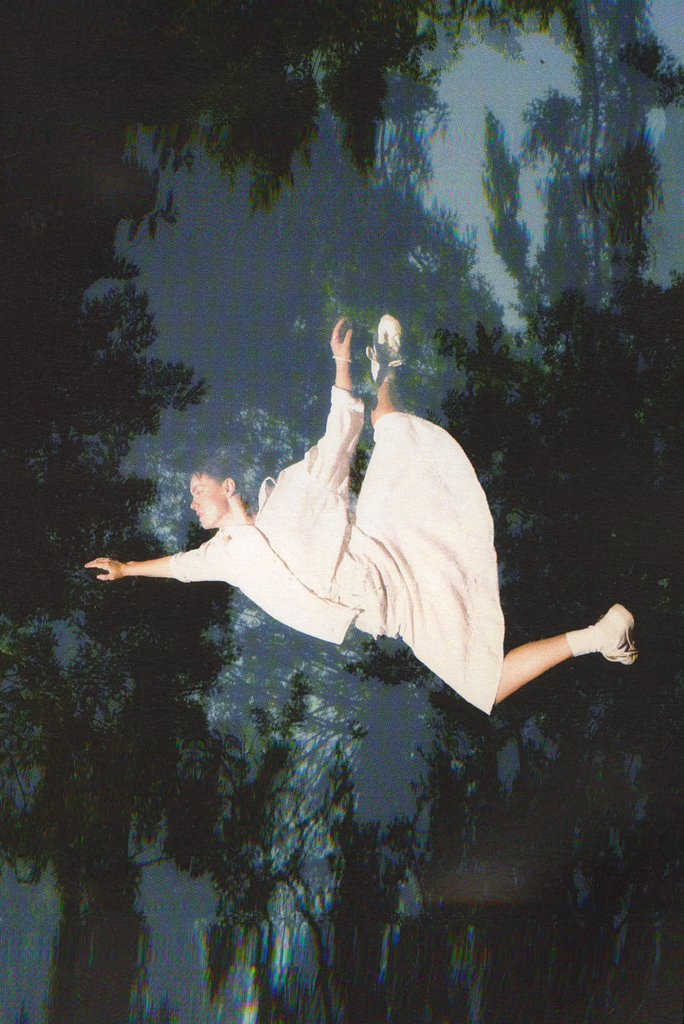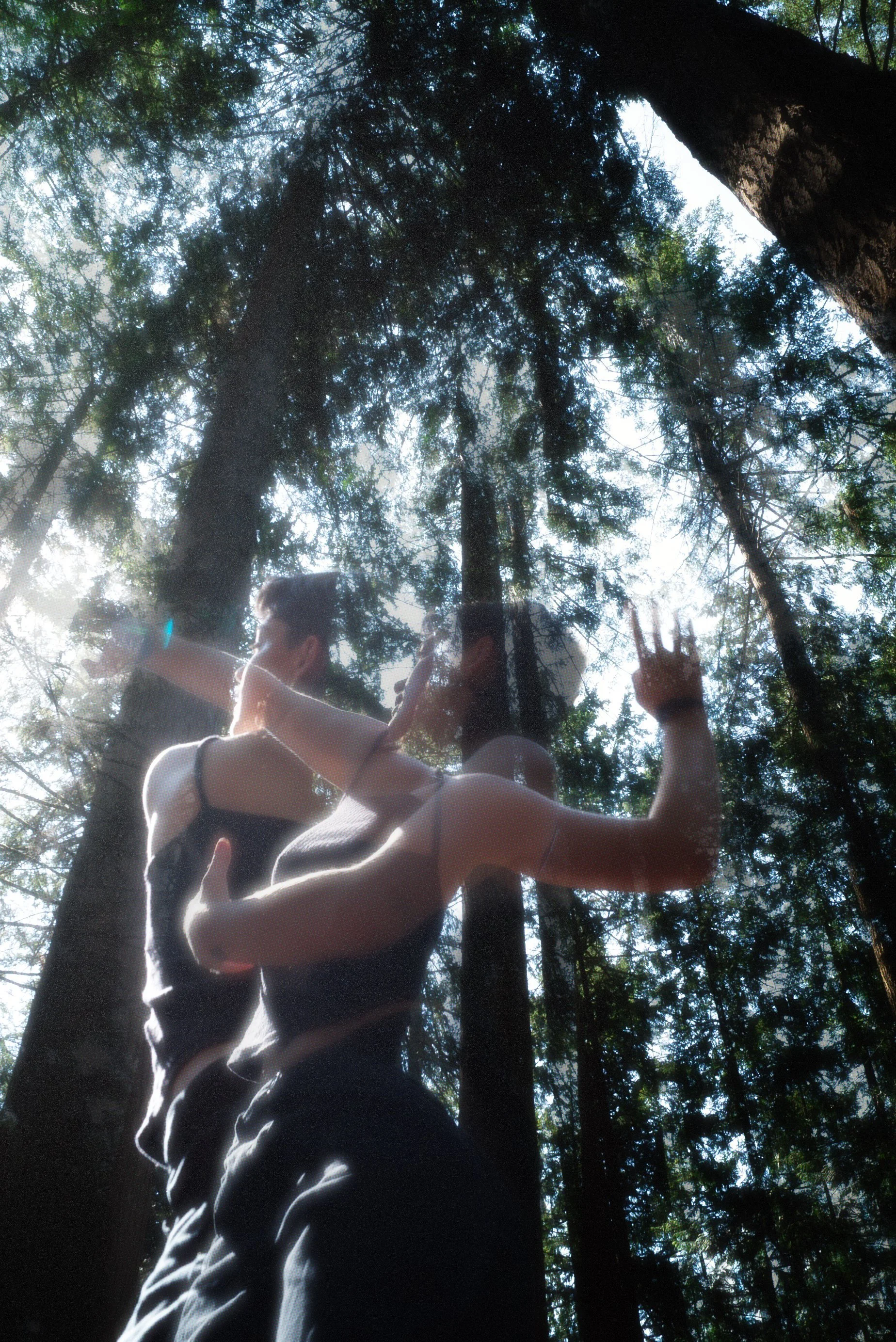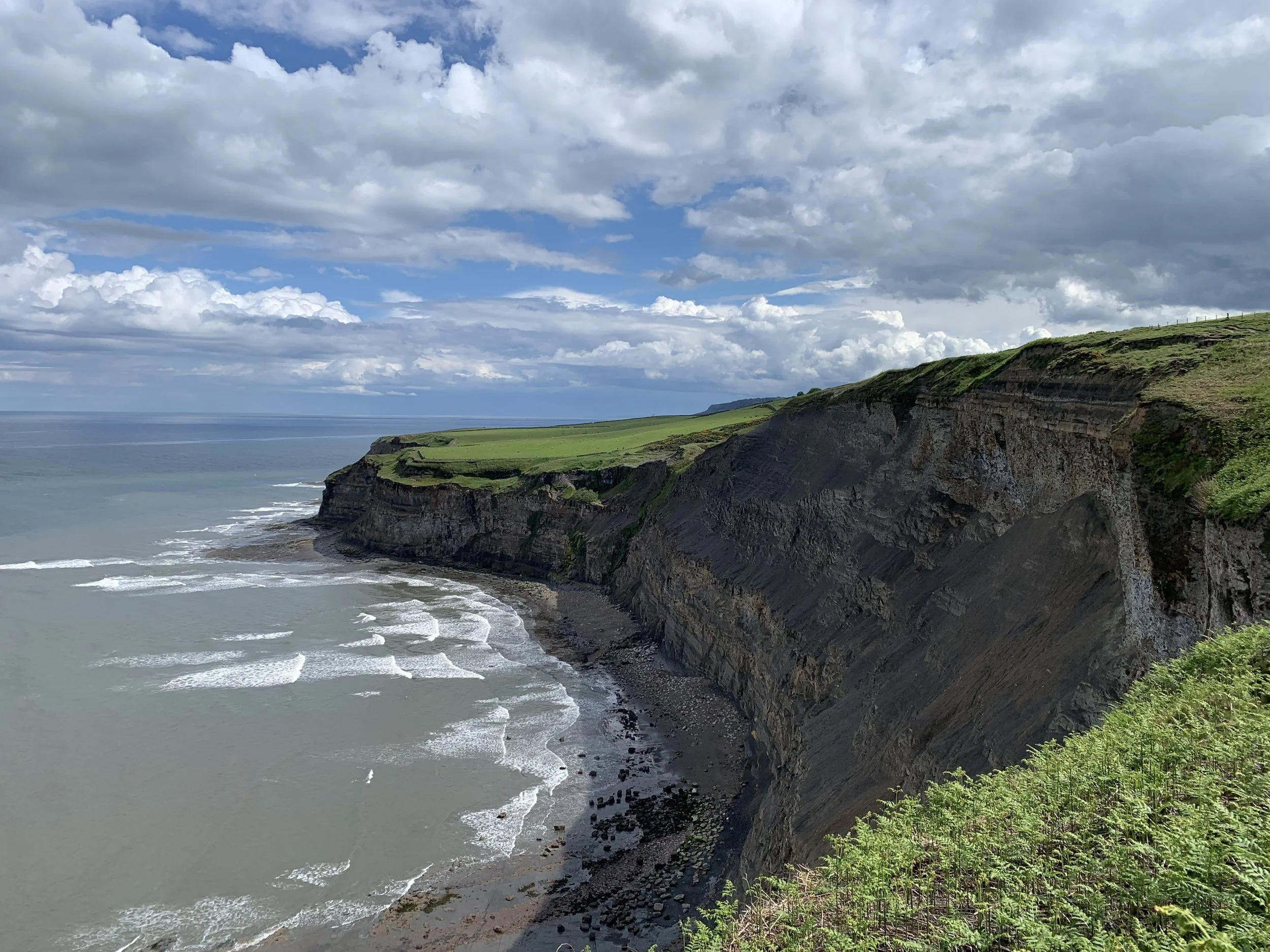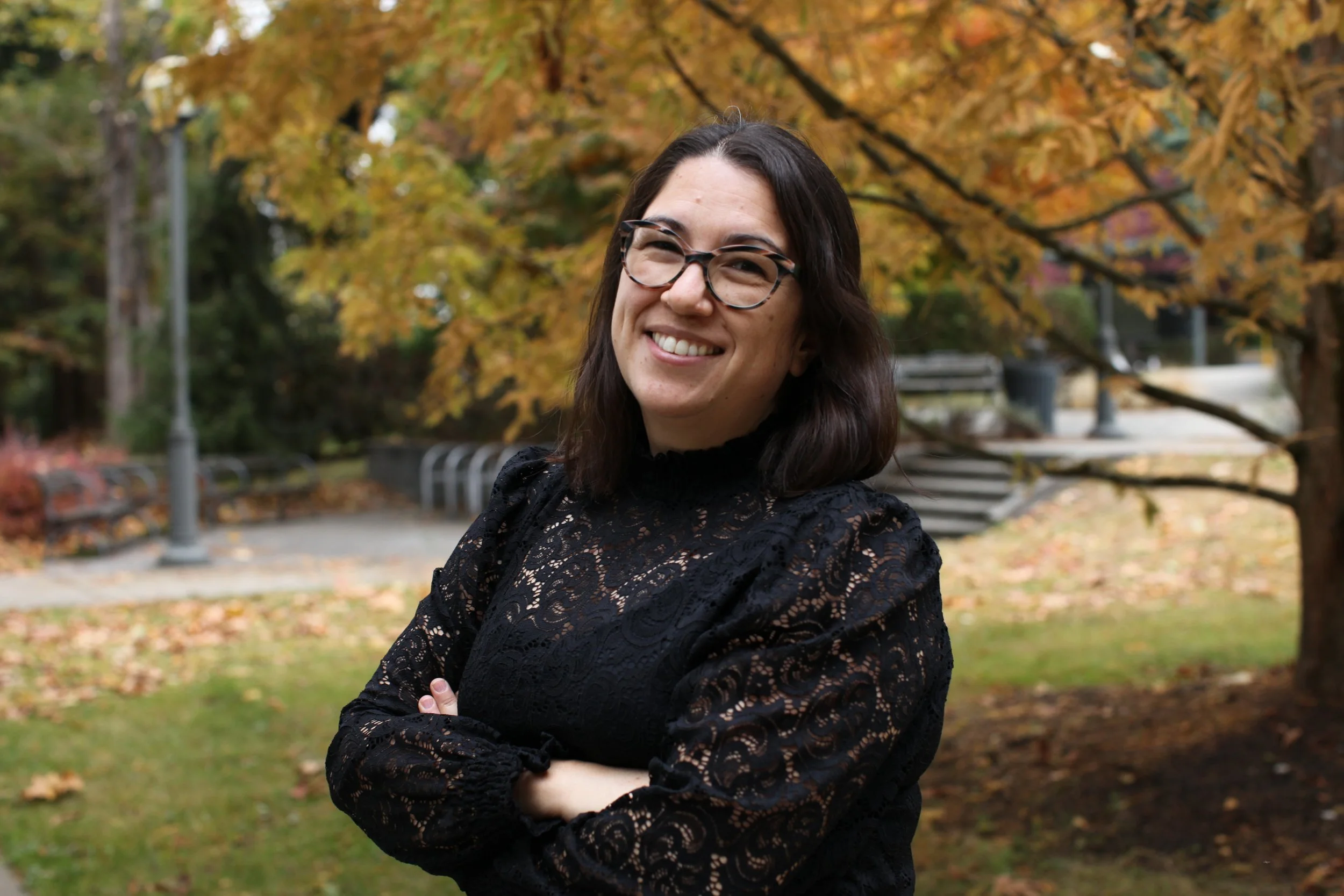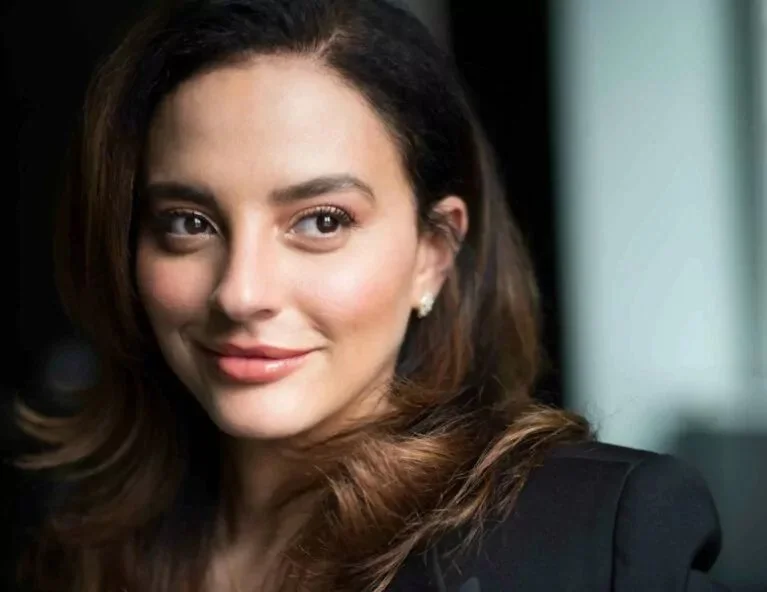Stir Q&A: At Opera Unbound, composer Kara Gibbs explores the cyclical nature of life
Multidisciplinary production sets new work Floating Island to dance choreography by Emma Hall and Rhiannon Beausoleil-Morrison
Floating Island. Photo by Jessica Wynn Cole
Floating Island. Photo by Jessica Wynn Cole
Opera Unbound presents Floating Island at the Annex on October 10 at 7 pm
AN ELECTROACOUSTIC SOUNDSCAPE, opera lyricism, and English poetry from 1829 all meld seamlessly in Floating Island, the latest work by Vancouver-based composer Kara Gibbs.
Commissioned by Opera Unbound, the harmonious piece takes a deep-dive into the cycles of nature, feminist history, and pastoral beauty. It will be performed by mezzo-sopranos Alyssa Nicole Samson and Taryn Plater (who is founding artistic director of Opera Unbound) with pianist Perri Lo.
In its world premiere at the Annex on October 10, Floating Island will be presented with a whimsical dance component choreographed by Rhiannon Beausoleil-Morrison and Emma Hall, both recent graduates of Arts Umbrella Dance Company. The movement balances tenderness and strength; dancers Elle Derkitt and Denae Harpham will bring it to life on stage alongside the musicians.
The upcoming concert will also feature works that celebrate women’s voices by B.C.–based composers Dorothy Chang, Katerina Gimon, and Roan Shankaruk, along with Toronto-based opera artist Danika Lorèn.
Stir touched base with Gibbs before the show to chat about her inspirations for Floating Island, which come from a deep connection to the natural world and to feminism.
Coast to Coast trail. Photo by Kara Gibbs
Can you share a bit about what your experience was like walking the Coast to Coast trail in England? How did that adventure lead to the creation of Floating Island?
The Coast to Coast trail is a wildly beautiful footpath that goes from the Irish Sea through three distinct National Parks—the Lake District, Yorkshire Dales, and North York Moors—ending at the North Sea. Walking long stretches of trail by myself every day for two weeks was both challenging and rewarding. I had days of intense rain and hail walking through thick fog and boggy marsh. I also had long stretches of brilliant sun, warm breeze, and rolling green hills. The views were stunning. And as much as the solitude was difficult at times, it also became a space of meditation and reflection. During these two weeks I felt incredibly attuned to the natural soundscape around me. I think when you’re alone, you listen differently. I brought a little microphone with me on my trip and recorded hours of incredible sounds on the trail—birds, ocean waves, wind, rain. These recordings have been layered and manipulated on an electroacoustic track that forms the foundation that I built the vocal and piano lines on top of.
How would you describe Dorothy Wordsworth’s poetry? What about it speaks to you, and how did her words influence the development of this composition?
When I first read Dorothy Wordsworth’s 1829 poem Floating Island it immediately spoke to me. It’s a rich and evocative text that explores the cyclical nature of life by depicting a lush island that houses plant and insect life until one day disappearing beneath the “glittering lake”. Touching on both the harmonious peace and the chaotically unpredictable power of the natural world, it warns “Nature…will take away—may cease to give.” Through the increasingly urgent lens of climate change, I think the words of this poem take on new meaning for us now. I’ve set the entire length of the poem from beginning to end and it serves as the narrative structure to the work. The recordings used are from right around where Dorothy lived and are sounds from the same natural landscapes that inspired her poetry.
Kara Gibbs.
What compelled you to incorporate a dance component into Floating Island, and how would you describe the movement being performed? Did you have any particular vision for the dance component at first—and if so, how did you work with the choreographers to bring it to life?
I have to give Opera Unbound all of the credit for bringing the incredible dance component to Floating Island. The founder, mezzo-soprano Taryn Plater, reached out to me not long after I returned from England. They had been looking to commission a new work that involved movement, and pianist Perri Lo brought on the choreographers and dancers through her connections in the dance community. Dance is not my area of expertise, so I gave the choreographers Rhiannon Beausoleil-Morrison and Emma Hall as much information as I could about the inspirations and ideas behind the music and sound elements and they had complete control to create the accompanying movement. The piece was workshopped and developed further at Belle Spirale’s Dance Deck with dancers Elle Derkitt and Denae Harpham and additionally with mezzo-soprano Rachael McAuley. The dance element adds so much to the piece, I’ve absolutely loved seeing it come together with the musical components in what has been a really collaborative process.
How have you incorporated different mediums and genres, ranging from acoustics and electroacoustics to the voices of women and nonbinary artists, into this piece? What kind of sonic experience do all these elements create?
One of the core ideas behind this work was the assembling a group of artists to be in conversation with female voices of the past. The connection with Dorothy’s Wordsworth’s poetry is clear in the vocal lines and electroacoustic elements of the work. I wanted to similarly pull ties like this into the piano score so I included a selection of quotations from composer Fanny Mendelssohn’s Nocturne in B minor. Fanny [1805-1847] would have been a contemporary of Dorothy Wordsworth [1771-1855], both creating their art at a time when making a career as a poet or composer was extremely difficult if not impossible for women. Fanny similarly had a brother with an extremely successful career in her field, composer Felix Mendelssohn, so was another interesting tie between the two.
The musicians who perform this score play a role in the creation through a few different sections of structured improvisation. My hope is that this inserts some elements of freedom and freshness into the score as no two performances are exactly the same.
Coast to Coast trail. Photo by Kara Gibbs
Some of the big themes in Floating Island include gender, feminism, and the natural world. What drew you to these topics, and why was it important for you to address them in your work?
The natural world is probably the biggest source of inspiration for my music, and is something I return to again and again. The absent voices of female artists throughout history is also something that I think about a lot. The Coast to Coast trail took me through a lot of little towns adorned with monuments to famous English writers, most of whom are male. I remember wondering about the female writers of the time, and being intrigued coming across the name “Dorothy Wordsworth” on a plaque in a park near Grasmere. I did a bit of research and discovered that she was a poet and diarist who was unpublished during her lifetime, the sister of famed writer William Wordsworth. Visiting the stunning landscapes of her hometown and being able to bring her words to life almost 200 years after she wrote them has been a real honour. ![]()



